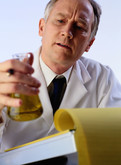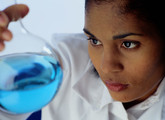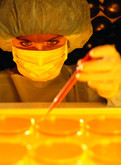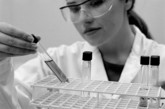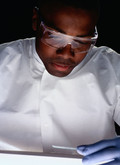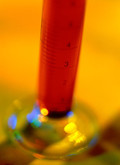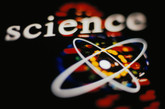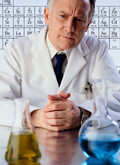Biosimilars
Medarex: With CDA1, CDB1 MAbs better metronidazole or vancomycin treatment against C difficile toxins
New therapies are needed to manage the increasing incidence, severity, and high rate of recurrence of Clostridium difficile infection in which toxins A and B cause pseudomembranous colitis. This is associated with bleeding and a severe form of diarrhoea, which together can lead to perforation of the lower bowel and even death.
Ustekinumab better than etanercept in psoriasis trial
In a study by Christopher Griffiths et al. of the University of Manchester, UK, Johnson & Johnson (J&J)’s monoclonal antibody STELARA (ustekinumab, an interleukin-12 and interleukin-23 blocker) and Amgen’s Enbrel (etanercept, an inhibitor of tumour necrosis factor: anti-TNF) have been compared for the treatment of psoriasis, as published in The New England Journal of Medicine (NEJM) of 14 January 2010. The Phase 3, Multicenter, Randomized Study Comparing CNTO 1275 and Etanercept for the Treatment of Moderate to Severe Plaque Psoriasis’ was sponsored by J&J’s Centocor.
Innovation over imitation: New FOBs technologies, players
In an article by Xencor President and CEO Bassil Dahiyat, published in Pharmaceutical Executive on 4 November 2009, tables are presented on new technologies for creating ‘biobetter’ follow-on biologics (FOBs) and potential ‘Big Pharma’ players in FOBs.
Innovation over imitation - How to deliver FOBs on the bottom line
In an article by Xencor President and CEO Bassil Dahiyat, published in Pharmaceutical Executive on 4 November 2009, the development of ‘biobetter’ follow-on biologics (FOBs) — optimised versions of pioneer drugs that have improved pharmaceutical properties but carry only minor changes in structure — is discussed.
Innovation over imitation - Charting the FOBs landscape
In an article by Xencor President and CEO Bassil Dahiyat, published in Pharmaceutical Executive on 4 November 2009, the development of ‘biobetter’ follow-on biologics (FOBs) — optimised versions of pioneer drugs that have improved pharmaceutical properties but carry only minor changes in structure — is discussed.
Innovation over imitation: Tools to compete and win with ‘biobetter’ FOBs
In an article by Xencor President and CEO Bassil Dahiyat, published in Pharmaceutical Executive on 4 November 2009, the development of ‘biobetter’ follow-on biologics (FOBs) — optimised versions of pioneer drugs that have improved pharmaceutical properties but carry only minor changes in structure — is discussed.
Innovation over imitation: High-cost biosimilar FOB development, slow uptake
In an article by Xencor President and CEO Bassil Dahiyat, published in Pharmaceutical Executive on 4 November 2009, the development of ‘biobetter’ follow-on biologics (FOBs) — optimised versions of pioneer drugs that have improved pharmaceutical properties but carry only minor changes in structure — is discussed.
Innovation over imitation: ‘Biobetter’ follow-on biologics
In an article by Xencor President and CEO Bassil Dahiyat, published in Pharmaceutical Executive on 4 November 2009, the development of ‘biobetter’ follow-on biologics (FOBs) — optimised versions of pioneer drugs that have improved pharmaceutical properties but carry only minor changes in structure — is discussed.
FTC- Biosimilars to spur innovation and competitive prices
In the Journal of Generic Medicines (published online 8 September 2009), Michael Wroblewski and Elizabeth Jex of the US Federal Trade Commission (FTC) write about the promise of follow-on biologics (FOBs) to spur both biological drug innovation and competitive prices.
Time for a re-evaluation of ESAs
In an article in The New England Journal of Medicine (NEJM) by Ellis F Unger, Aliza M Thompson, Melanie J Blank, and Robert Temple, published on 6 January 2010 at NEJM.org, it is stated that it is time for a re-evaluation of erythropoiesis-stimulating agents (ESAs).
